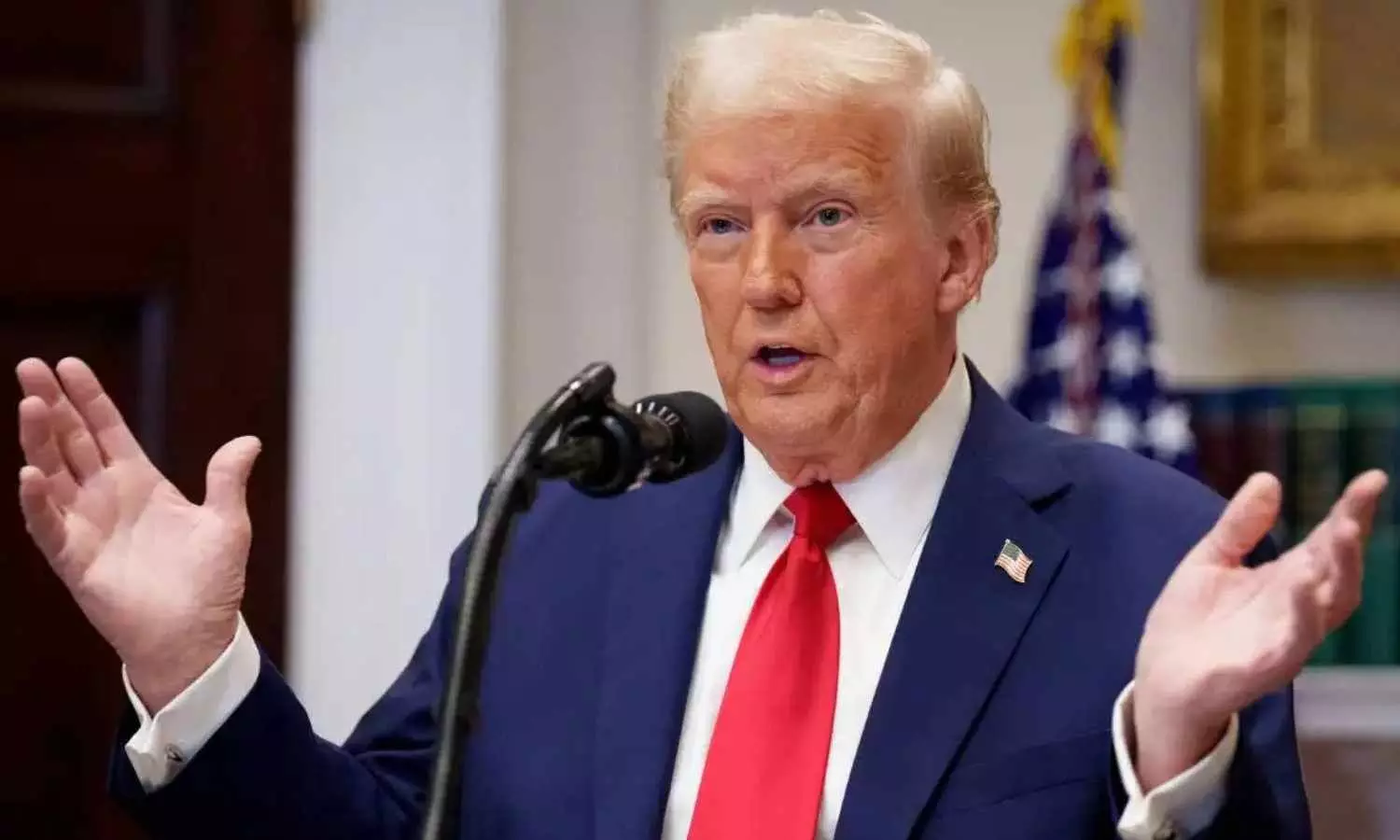Explained: Why are Asian Markets Down?
Asian markets witnessed steep declines as US President Donald Trump's tariffs continued to cause havoc across the world.
Explained: Why are Asian Markets Down?

Asian markets witnessed steep declines as US President Donald Trump's tariffs continued to cause havoc across the world.
Indices from Shanghai to Tokyo and Sydney to Hong Kong fell after they opened on April 7. “It's a bloodbath,” one analyst told the BBC.
Asian countries and regions are largely prone to the impact of global trade war and could also trigger a slowdown or even a recession in the world's biggest economy.
Japan's Nikkei 225 fell by 6%, while ASX 200 and Kospi plunged by 6% and 4.7% respectively.
The Shanghai Composite went down by more than 6%.
“Tariffs are feeding into expectations around inflation and a recession,” said Julia Lee, head of client coverage at FTSE Russell, a subsidiary of the London Stock Exchange Group.
Goldman Sachs estimates that there is a 45% chance the US will fall into recession, compared to earlier estimation of 35%. JPMorgan now sees a 60% chance of a US and global economic downturn.
A slowdown in the U.S. can prove detrimental to the Asian exporters as the former is an important market for the latter.
“Asia is bearing the brunt of the US tariff hike. While there could be some room for negotiation, a new regime of higher tariffs are here to stay,” said Qian Wang, Asia Pacific chief economist at investment firm Vanguard.
“This is negative to the global and Asia economy, especially those small open economies, both in the short term and long term.”
Countries including Vietnam and Bangladesh have significant exposure to the U.S.
Several US brands including Nike and Lululemon produce their goods in Vietnam. Bangladesh exports $8.4bn (£6.5bn) worth of garments a year to the US, according to trade body the Bangladesh Garment Manufacturers and Exporters Association.
“Asia is likely to feel a disproportionate brunt of this turmoil because Asia sends more exports to the US than to other markets,” said Frank Lavin, former undersecretary for international trade at the US Department of Commerce.

